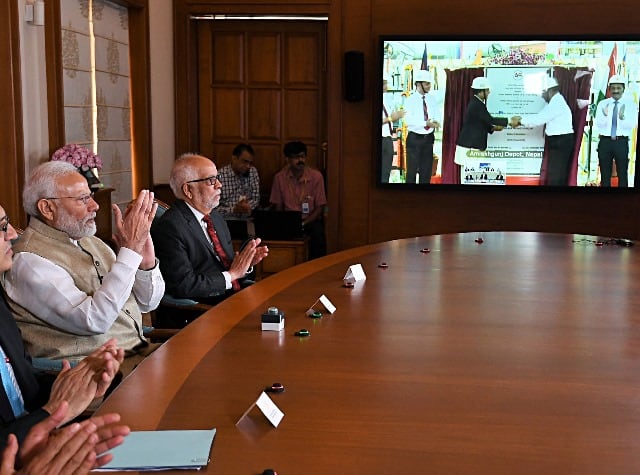
Month: September 2019

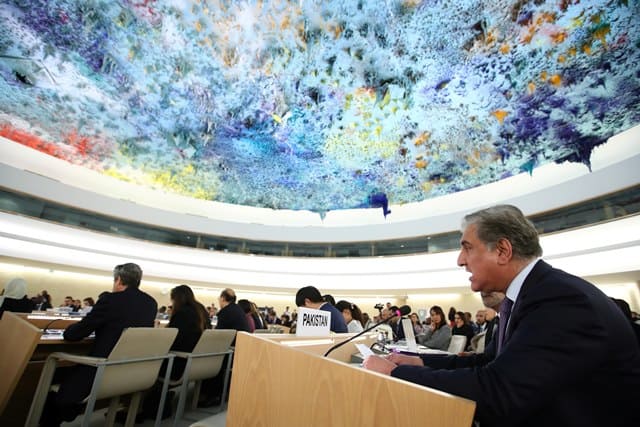
Pak At UN: J&K Turned Into A Prison
Speaking at the UN Human Rights Council (UNHRC), Pakistan Foreign Minister Shah Mehmood Qureshi claimed that the world is also talking about the “brutality” Kashmiris are facing in the region.
“I brought the plea and the petition of the people of Indian Occupied Kashmir (IoK) whose basic and innumerable human rights are being trampled with impunity by India. The people of this occupied land suffering systematic and serial violations of their fundamental freedoms.
“For the last six weeks, India has transformed occupied Jammu and Kashmir into the largest prison on this planet which virtually no access to basic amenities and means of communications,” Qureshi alleged.
He claimed, “Shops are running short of supplies, hospitals of life-saving medicines and the sick and wounded many of them due to the direct and indiscriminate use of force by the Indian occupation forces. Locals are unable to access even the emergency health services. Human rights being trampled with impunity by India.”
Qureshi said, “The situation in this territory must be of direct international concern. It is not and can never be an internal matter for India.” The rattled Pakistan also sought the world’s support in criticising India for scrapping Article 370 from Jammu and Kashmir.
“I am not alone in drawing attention to India’s outright brutality and blatant disrespect of human dignity. The world is speaking,” he said.
Ironically, when Qureshi was speaking at the UNHRC, World Sindhi Congress (WSC) held an anti-Pakistan protest outside the UN complex here.
In its desperation, Pakistan is trying hard to bring the issue back on the UN table but it is unlikely to succeed as it hardly has any international support, mainly for being discredited because of sponsoring terrorism. Countries like Russia, UAE, US, Sri Lanka, Israel and many others have supported India on this matter, experts said.(ANI)
]]>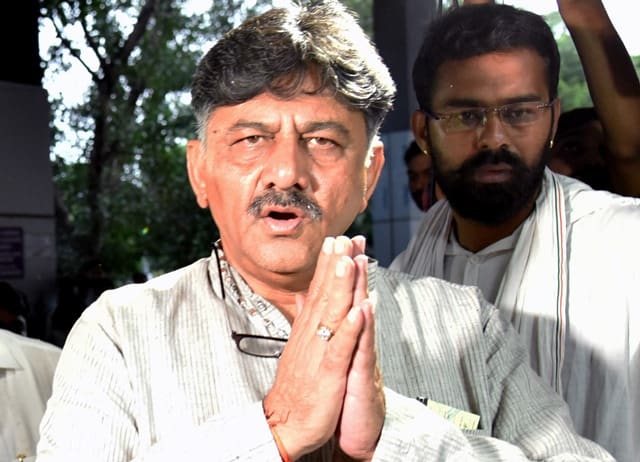
ED Summons Shivakumar's Daughter
The agency asked Aishwarya to appear before it on September 12. According to sources, the ED is likely to quiz her on certain transactions.
Shivakumar was arrested by the agency late evening on September 3, after which he was sent to the ED’s custody for ten days by a Delhi court.
A money laundering case was registered by the agency against him in September last year, based on a complaint filed by the Income Tax Department.
The I-T Department, during the initial probe, had found unaccounted and misreported wealth linked to Shivkumar.
The I-T Department also came across money laundering and hawala operations, involving a network of persons across Delhi and Bengaluru. They had allegedly set up a base in order to transport and utilise the unaccounted cash.
(ANI)
]]>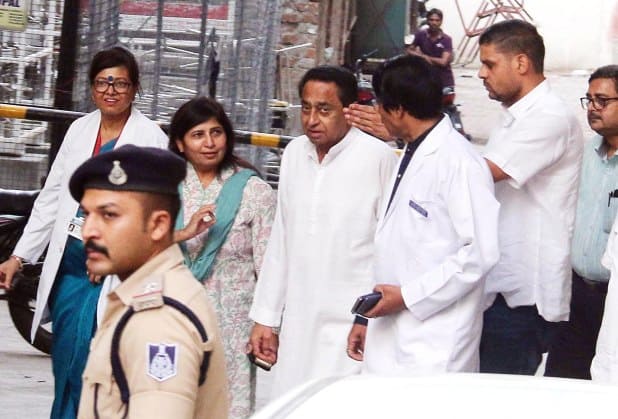
Kamal Nath To Be In Jail Soon: Akali Dal
SAD national spokesperson Manjinder Singh Sirsa said: “Due to technical and legal angles somehow he has been escaping for the past 34 years. I believe Kamal Nath will be the only sitting chief minister who will be arrested in connection with the 1984 massacre,” Sirsa told ANI.
Speaking about the case registered against Kamal Nath, the SAD leader said, “The Ministry of Home Affairs has issued a fresh notification in connection with the 1984 anti-Sikh riots stating that all the cases which were closed or in which trials have been completed will be opened again.”
Sirsa said that the specific case was against Kamal Nath who was a “part and parcel” of the mob that killed two innocent persons in Gurudwara Rakabganj Sahib during the 1984 riots.
After the notification was issued, Sirsa along with his team submitted the representation to the chief of Special Investigation Team (SIT) which ensured that the case against Kamal Nath will be opened soon.
“Now, the SIT has opened this case and issued a notice for the witnesses to come forward and depose before it for the particular FIR no. 601/84, which is lodged against Kamal Nath and his fellows,” he said.
Sirsa also said that two prime witnesses in the case are Sanjay Suri and Mukhtiar Singh Singh.
While Singh was the lawyer of Gurudwara Rakabganj Sahib employee, Suri was press reporter, he said adding that they both are ready to depose.
He said the SIT has given them a specific time to appear before it.
Seeking free and fair trial, Sirsa said: “We want Sonia Gandhi to ask for Kamal Nath’s resignation if they want justice to be done.”
He also said that security should be provided to the witnesses as there was “threat to their life”. (ANI)
]]>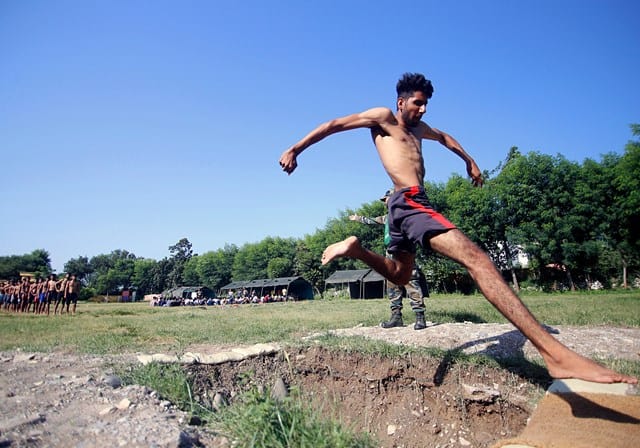
Army Recruitment Drive In J&K
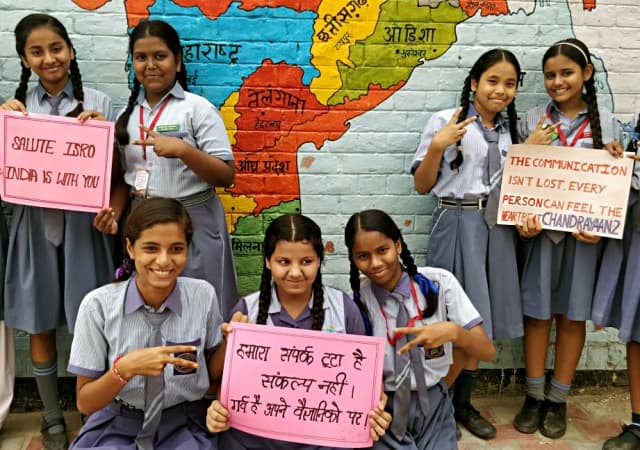
Schoolchildren Salute ISRO Efforts
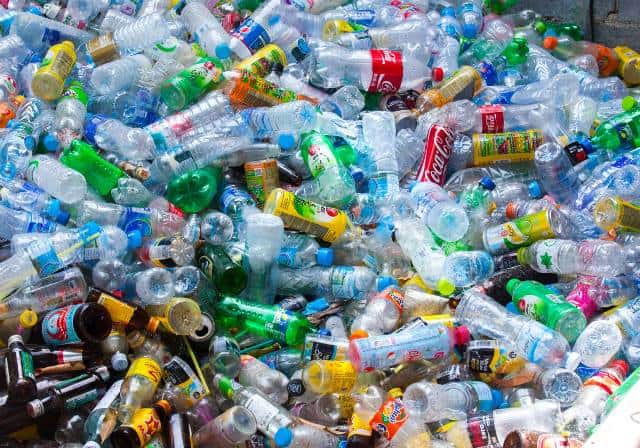
Can India Implement Ban On Single-Use Plastic?
It is not a day too soon there is promise of India coming down with some force on the single use plastic, which the quintessential bottle holding still water principally represents. In the available order in the country, hardly anything of importance will move till the prime minister himself will herald a campaign. For example, the Swachh Bharat Abhiyan, a five-year mission launched with great fanfare in 2014 coinciding with the 150th birth anniversary of Mahatma Gandhi took wing nationally because Narendra Modi made it his signature policy. Even then, we will be far from a ‘clean India’ by this yearend because of citizenry apathy. Hopefully, he will do better with putting a stop to the use-once-and-discard plastic items.
On the Independence Day speaking from the ramparts of Red Fort, Modi said: “Can we free India from single use plastic? The time for implementing such an idea has come. May teams be motivated to work in this direction.” Earlier on the World Environment Day in 2018, the then minister for environment, forest and climate change Harsh Vardan said attempts would be made to phase out use of single use plastic by 2022. Not unexpectedly, nothing worth telling has happened since the minister spoke. Except for a good number of states notifying full or partial ban on single use plastic.
But as is not uncommon in India, the state level fiat is respected more in violation than in observance. What is to be remembered is that the petrochemical industry has a strong lobby and this is the reason why violations happen with impunity. Is it any surprise then that the country’s leading retailers such as Big Bazaar, Reliance Retail and V Mart are far from being environment friendly as they continue to give buyers the bought items in plastic bags? An example of the triumph of convenience and consumer preference over keeping the environment clean.
Plastics, the emblem of postwar consumerism are described as the workhorse of modern economy. They are finding a wide range of applications because of their light weight, robustness, easy formability and price advantage over competition. Riding on these strengths, global annual production of plastics advanced from 15m tonnes in 1964 to over 350m tonnes presently. Consulting firm McKinsey says in case the present rate of demand growth is sustained, albeit defying the spasm of popular disgust against the harmful effect on environment and health, then plastics output will take a leap to 600m tonnes by 2034. Confidence about demand growth is high among producers, particularly in the US. The North American market is seeing record amounts of capacity in the pipeline.
Not surprisingly green activists and others are alarmed by the development. The concern is because not only are there emissions of enormous quantities of greenhouse gases in the course of production of plastics, the environment suffers further damage as overwhelmingly large portions of used plastics go into landfills, or are burnt or are left to litter everywhere from city streets to seashores to foothills of mountains. We do this without realising that plastics escaping the established waste collection system will be floating on the earth for centuries, all the time causing harm to the environment. The intended life of single use plastic products is not even a year but for the laxity on the part of administration in India and elsewhere they virtually get an infinite life.
A report co-authored by McKinsey, Ellen MacArthur Foundation and the World Economic Forum estimates the negative externalities of plastics at $40bn, including pollution impact and that is more than the industry’s annual profits. The report gives the warning that if the future demand growth for plastic products remains at the current rate then the global plastic-waste volume will climb to 460m tonnes a year by 2030 from 260m tonnes in 2016. The present waste volume is already a major environmental concern. But the waste size forecast for the future will take the problem to “a whole new level,” says the report. A chart prepared by culling information from multiple sources shows the recycle rate of plastics at lower than 40 per cent compares poorly with steel at 80 per cent, aluminium cans and glass at 78 per cent and beverage carton at 43 per cent. What particularly raises despair is the rate of recycling rate at a pathetically low of 10 per cent for polyethylene, which is the most commonly produced plastic.
As against the growing public discontent over the poor rate of plastic recycling, the World Steel Association and International Aluminium Association are upholding the virtues of circular economy under which not only the end of life metal products are collected and shredded for recycling but facilities have been built in production systems for optimum reuse of water and energy. Public anger besides that is forcing more and more governments to take action against single use plastics – as many as 127 countries have either banned or levied taxes on disposable plastic bags – the industry will have to contend with competition emerging from alternative biodegradable products such as wood fibre bottle, recently unveiled by brewer Carlsberg. Is it not time for jute goods makers to put their house in order to regain the market lost to plastic bags used in packing foodgrains and sugar? Unfortunately, ownership of jute mills, except for a few, has moved from respectable corporate houses to traders who lack foresight.
Modi hasn’t spelt it out in any detail, but his angst must be occasioned by almost a third of all plastic packaging leaks amounting to more than 8m tonnes a year finding its way into the oceans polluting waters. No wonder we read frequently reports of marine species such as whales, turtles and fishes perishing due to their unwittingly ingesting plastics thinking these to be food and choking themselves to death. To everyone’s horror, microplastics have been found in the remote reaches of the Arctic. Not only in tap water, but plastic fibres are found in more than 90 per cent of bottled water.
No wonder then plastics manufacturers are finally trying to find fixes of popular concerns. Some independent companies are working on breaking down plastics into their components for conversion into new materials. Scientists say waste polyethylene is a potential carbon source that could be made into value added polymers. Noticeable progress has been made in laboratories to turn waste plastics into a pliable wax like substance to which then is added other elements resulting into bioplastics. We don’t have at this point any estimate of how much of waste plastics in India could be recycled. But developed countries are targeting 70 per cent recycling by 2030. McKinsey has recommended decoupling of plastics from fossil feedstocks by way of exploring and establishing renewably sourced feedstocks. But this will be a journey which will meet with serious opposition from the powerful oil industry.
]]>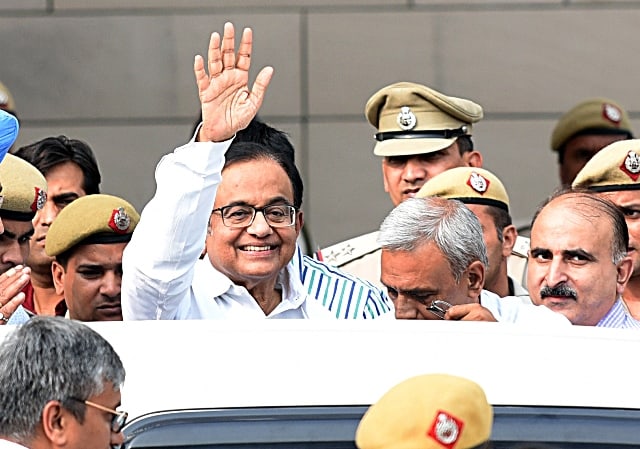
'Why No Officer But Only I Was Arrested?'
A tweet from his official account said that he had asked his family to tweet his remarks on his behalf.
However, he hastened to add in another tweet that no officer has done anything wrong in the case and he does not want anyone to be arrested.
“I have requested my family to tweet on my behalf the following:- People have asked me ‘If the dozen officers who processed and recommended the case to you have not been arrested, why have you been arrested? Only because you have put the last signature?’ I have no answer.”
“No officer has done anything wrong. I do not want anyone to be arrested,” the tweets read.
Chidambram was arrested by CBI in the INX Media case on Aug 21 and sent to CBI custody for interrogation. Last week, a CBI court sent Chidambaram to judicial custody in Tihar Jail till September 19.
Chidambaram is facing probe in cases registered by the CBI and the ED pertaining to alleged irregularities in the Foreign Investment Promotion Board clearance given to INX Media to the tune of Rs 305 crore in 2007 when he was the Union Finance Minister. (ANI)
]]>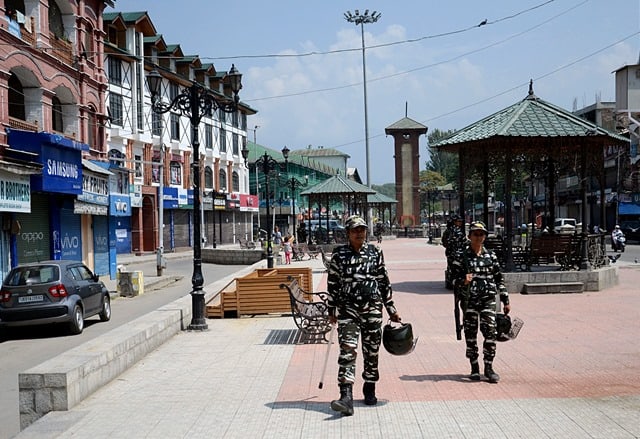
UN Rights Chief On J&K: 'Deeply Concerned'
Addressing the 42nd session of the Human Rights Council meeting here Bachelet said: “In relation to Kashmir, my Office continues to receive reports on the human rights situation on both sides of the line of control. I am deeply concerned about the impact of recent actions by the Government of India on the human rights of Kashmiris, including restrictions on internet communications and peaceful assembly, and the detention of local political leaders and activists.”
Bachelet said that she has explicitly urged India to ease the current lockdowns or curfews and ensure people’s access to basic services in the region.
“While I continue to urge the Governments of India and Pakistan to ensure that human rights are respected and protected, I have appealed particularly to India to ease the current lockdowns or curfews; to ensure people’s access to basic services; and that all due process rights are respected for those who have been detained,” she said.
The High Commissioner said it was important that the people of Kashmir are consulted and engaged in any decision-making processes that have an impact on their future.
Regarding the National Register of Citizens (NRC) verification process in Assam, Bachelet said that the process has caused great uncertainty and anxiety, with some 1.9 million people having been excluded from the final list published on August 31
She appealed the Indian government to ensure “due process during the appeals process, prevent deportation or detention, and ensure people are protected from statelessness.”
The final list of Assam’s NRC was released on August 31, 2019. More than 19 lakh of the 3.29 crore applicants in Assam were left out of the final National Register of Citizens. A total of 3,11,21,004 persons found eligible for inclusion in the final NRC list.
India’s Ministry of Home Affairs has assured that those excluded in the final list will not be immediately sent to dentition centres and they can appeal. (ANI)
]]>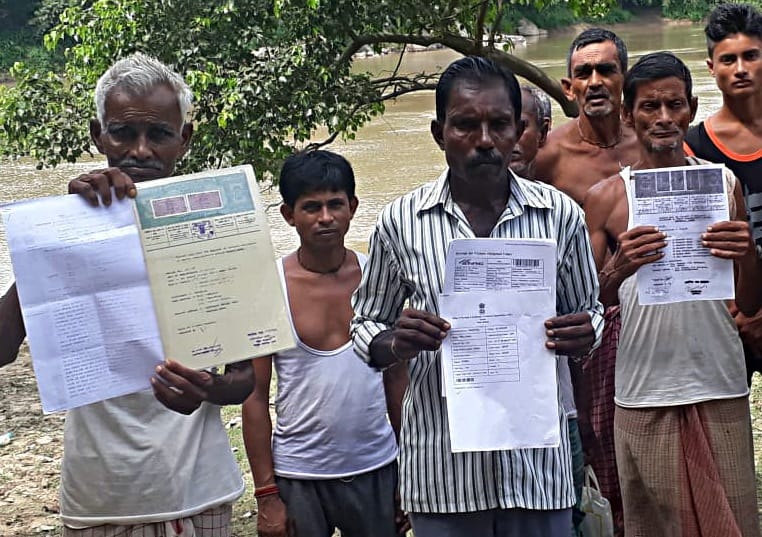
India Will Be Free Of Infiltrators: Shah
“In all states, especially in Assam, people have expressed concern for NRC, both different queries. They think that many people have been left out of NRC. Smaller states have concerns that those left out in NRC could come to their states. I want to assure that no infiltrator can live in Assam and they cannot enter other states because we want to make the whole country free ofinfiltrators, not just Assam,” he said.
In the final NRC list published on August 31, a total of 3,11,21,004 persons are found eligible for inclusion in final list leaving out 19,06,657 persons, including those who did not submit their claims.
The list is aimed at segregating Indian citizens living in Assam from those who had illegally entered the state from Bangladesh.
The Home Minister said that there is no link at all between Article 370 and Article 371.
“Article 370 was a temporary provision, while Article 371 is a special provision and it is a right of the North East. All your rights shall be protected. No intrusion of any kind shall be allowed. No intrusion of any kind shall be allowed. Art 371 will not be hurt by Citizenship Amendment Bill. The government is working on this. Citizenship Amendment. W have a very clear cut off date December 31, 2014,” he said.
Shah said that they people should work towards making North East free from corruption. “The more you work on eliminating corruption, more people will like you. You shall be liked and appreciated,” he added.
The Home Minister requested all border states of North East to become vigilant and work with Union Government to ensure strict action against those involve in drug trafficking, arms smuggling and human trafficking.
Shah said that all states should work in coordination to offer a joint package for tourism in the region.
Speaking on NEDA which is a coalition of parties led by the BJP, Shah said that the alliance is a geo-cultural entity of North East.
“If we want NDA to reach every village in North-East, then we needed NEDA. The process of creating NEDA started in 2016, now it has become big. When I went to Nagaland, I had said that we need to make North-East Congress-free. Now, it has become reality and whole North-East is now under NEDA,” he said.
“Every state is an integral part of India, to spread this feeling at the grass-root level it was important to make North-East ‘Congress Mukt’. Today, I’m delighted that all 8 states of North-East are with NEDA,” the Home Minister said. (ANI)
]]>